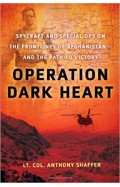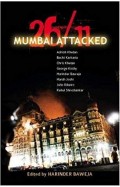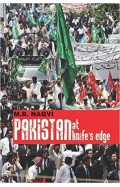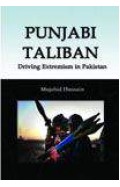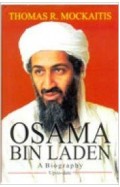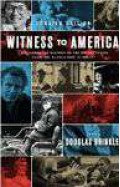- Home
- Categories
- Non Fiction
- Politics & Current Affairs
- Winning Modern Wars - Iraq, Terrorism And The American Empire
Winning Modern Wars - Iraq, Terrorism And The American Empire
By: Wesley Clark
-
Rs 8,091.00
- Rs 8,990.00
- 10%
You save Rs 899.00.
Due to constant currency fluctuation, prices are subject to change with or without notice.
We are offering a high discount on this book due to its “SLIGHTLY DAMAGED” condition |
General Wesley K. Clark's Waging Modern War, a Washington Post bestseller, examined his experience directing the NATO-led war in Kosovo. As Clark saw it, the Kosovo war—limited in scope, measured in effect, extraordinarily complex in execution, waged with an uneven coalition, with instantaneous media coverage, and with a duration measured in days and not years—would serve as a model for contemporary war. He has been proven right.
In Winning Modern Wars, he writes about how the issues and principles discussed in his earlier book were evident in Afghanistan and Iraq, and will apply wherever the war on terrorism may take us next, providing a frank and revealing analysis of the gains, risks, and shortfalls of America's current approach and offering informed alternatives. What Clark, an admired military analyst on CNN and one of the most decorated and influential officers of his generation, has to say on our national plans and tactics—and the lessons of empire—is invaluable, reminding us that as we celebrate our successes, we must also tend to their consequences.
We are offering a high discount on this book due to its “SLIGHTLY DAMAGED” condition |
General Wesley K. Clark's Waging Modern War, a Washington Post bestseller, examined his experience directing the NATO-led war in Kosovo. As Clark saw it, the Kosovo war—limited in scope, measured in effect, extraordinarily complex in execution, waged with an uneven coalition, with instantaneous media coverage, and with a duration measured in days and not years—would serve as a model for contemporary war. He has been proven right.
In Winning Modern Wars, he writes about how the issues and principles discussed in his earlier book were evident in Afghanistan and Iraq, and will apply wherever the war on terrorism may take us next, providing a frank and revealing analysis of the gains, risks, and shortfalls of America's current approach and offering informed alternatives. What Clark, an admired military analyst on CNN and one of the most decorated and influential officers of his generation, has to say on our national plans and tactics—and the lessons of empire—is invaluable, reminding us that as we celebrate our successes, we must also tend to their consequences.
Winning Modern Wars - Iraq, Terrorism And The American Empire
By: Wesley Clark
Rs 8,091.00 Rs 8,990.00 Ex Tax :Rs 8,091.00
Zubin Mehta: A Musical Journey (An Authorized Biography)
By: VOID - Bakhtiar K. Dadabhoy
Rs 472.50 Rs 1,050.00 Ex Tax :Rs 472.50
Myths Illusions and Peace: Finding a New Direction for America in the Middle East
By: Dennis Ross
Rs 985.50 Rs 1,095.00 Ex Tax :Rs 985.50
Operation Dark Heart: Spycraft And Special Ops On The Frontlines Of Afghanistan And The Path To Victory
By: Anthony Shaffer
Rs 2,025.00 Rs 2,250.00 Ex Tax :Rs 2,025.00
Anna Hazare: The Face Of Indias Fight Against Corruption
By: Pradeep Thakur
Rs 225.00 Rs 300.00 Ex Tax :Rs 225.00
How To Win A Cosmic War God Globalization And The End Of War
By: Reza Aslan
Rs 625.50 Rs 695.00 Ex Tax :Rs 625.50
Witness To America: A Documentary History Of The United States From The Revolution To Today
By: Douglas Brinkley
Rs 4,495.50 Rs 4,995.00 Ex Tax :Rs 4,495.50
No similar books from this author available at the moment.
No recently viewed books available at the moment.
Zubin Mehta: A Musical Journey (An Authorized Biography)
By: VOID - Bakhtiar K. Dadabhoy
Rs 472.50 Rs 1,050.00 Ex Tax :Rs 472.50
Winning Modern Wars - Iraq, Terrorism And The American Empire
By: Wesley Clark
Rs 8,091.00 Rs 8,990.00 Ex Tax :Rs 8,091.00












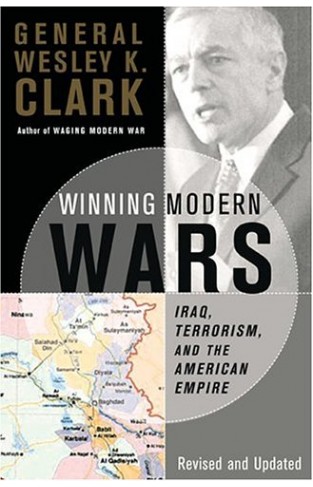
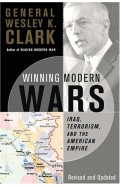
-120x187.jpg?q6)






